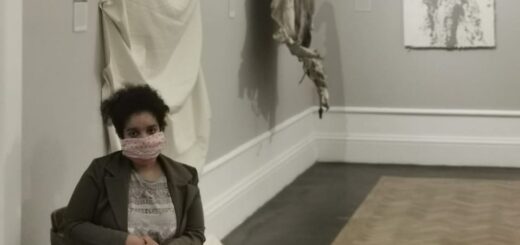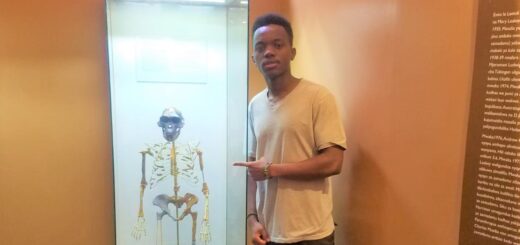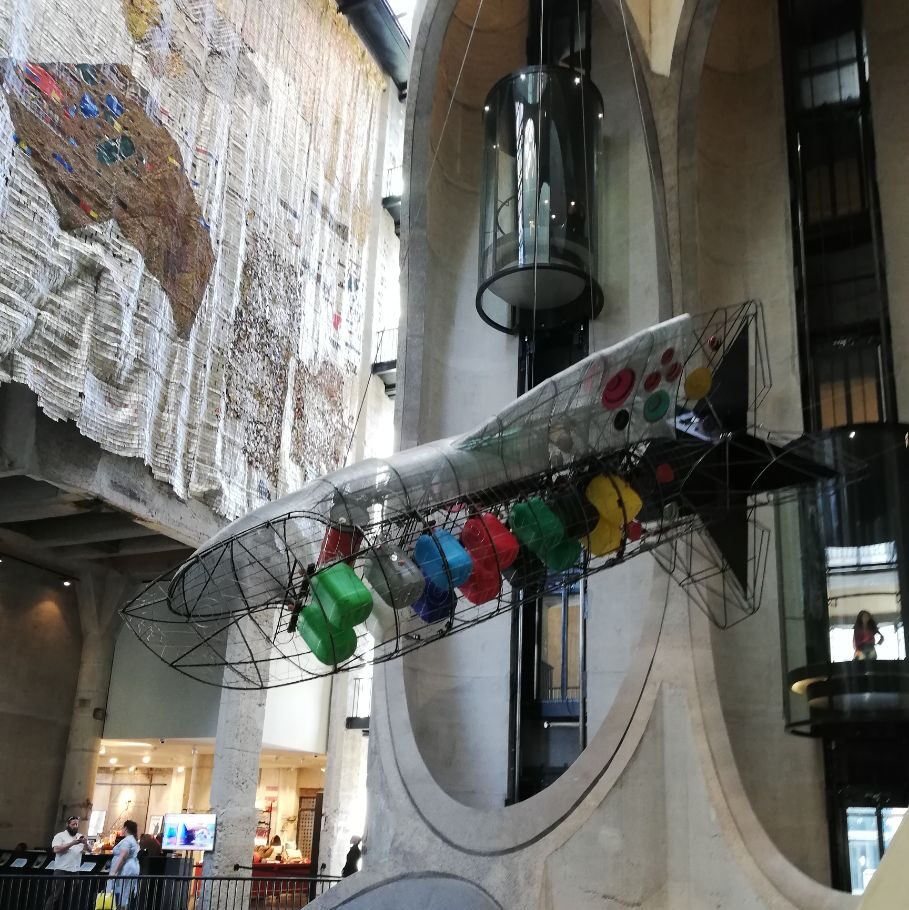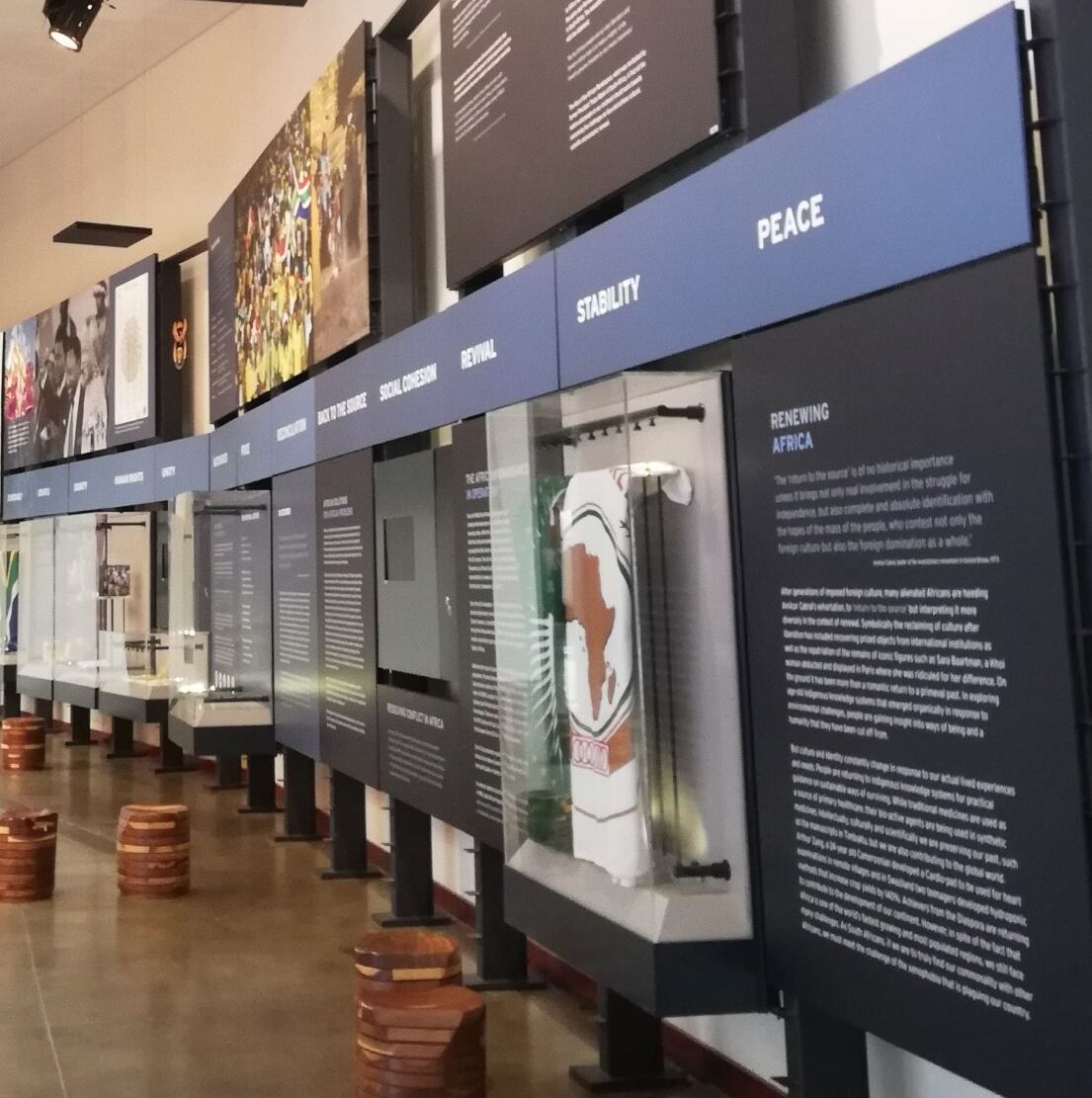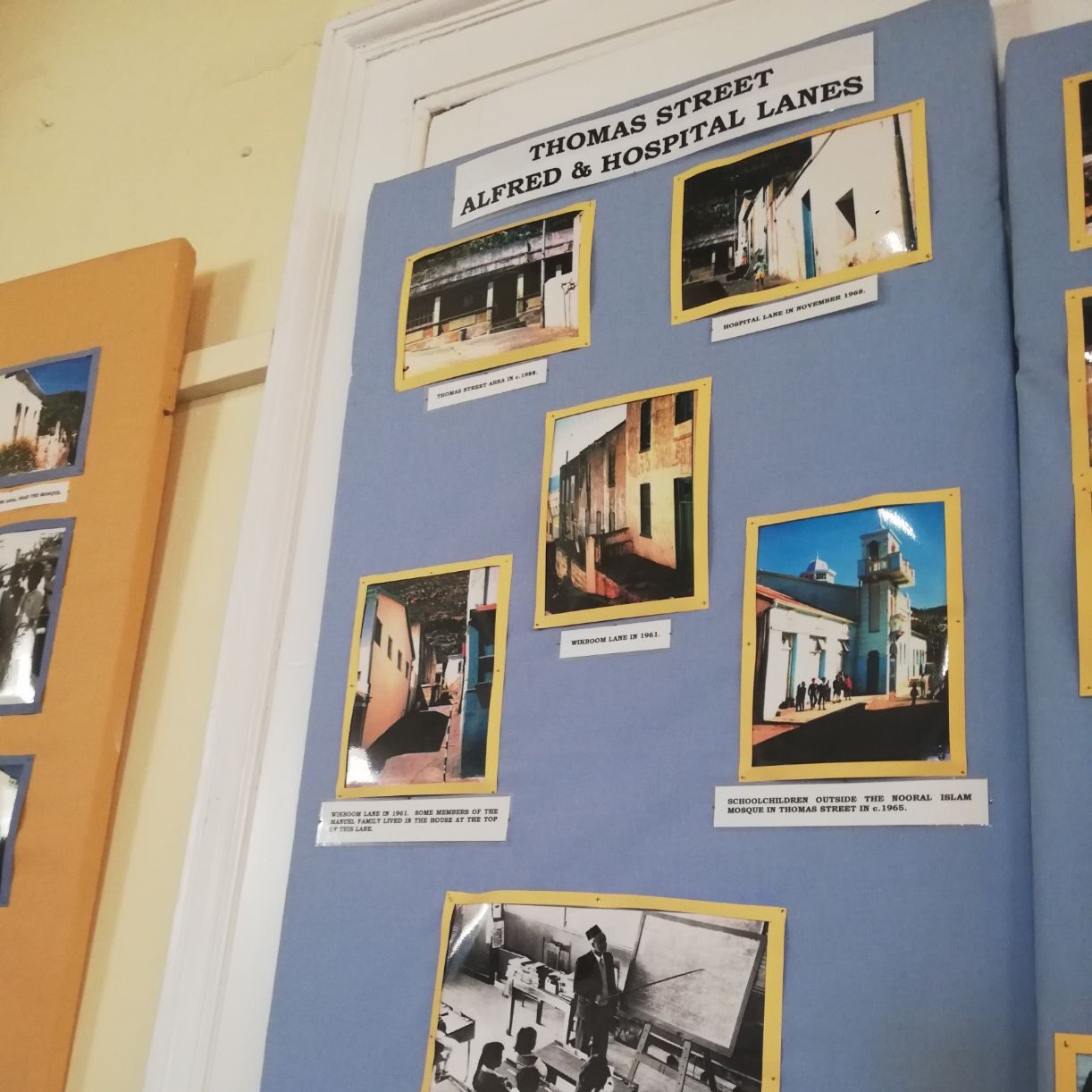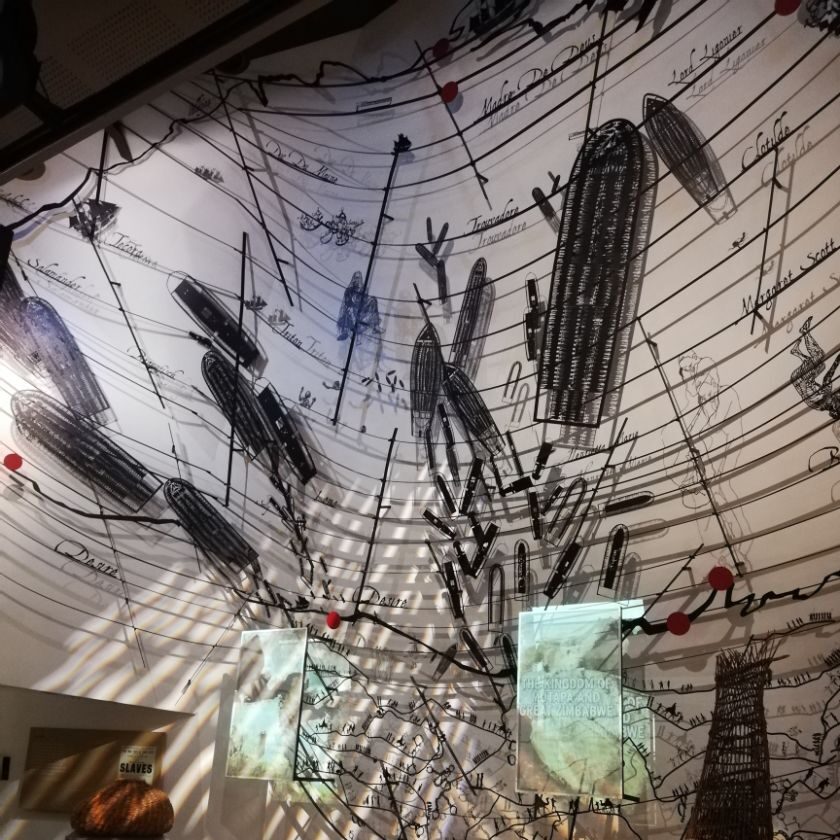Youth in the Museum: Looking to the Future Museum
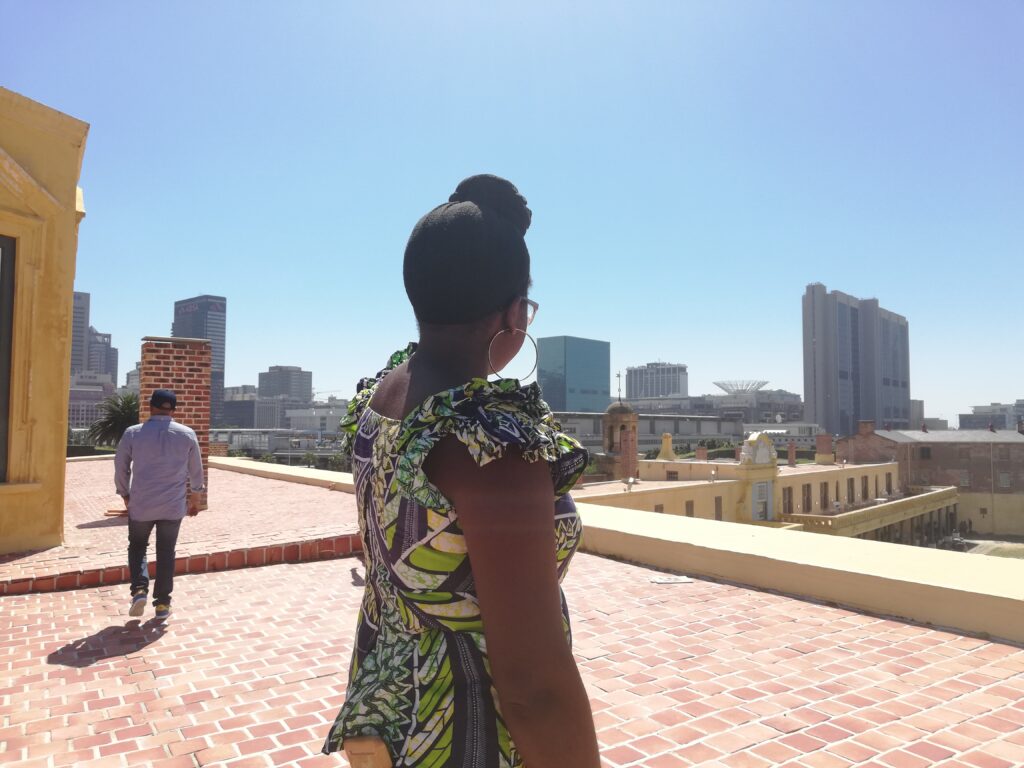
In the second of a two-part series, young people articulate their vision for the future of museums. When it comes to learning about heritage, youths don’t feel the need to engage much with museums. They explain why, as well as what their ideal museum — one that they would more readily engage with — would look like.
Youth Participants
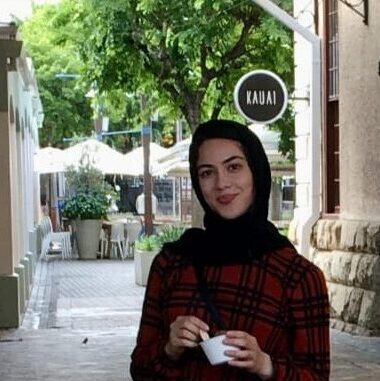
Naeemah Davids is a 22-year-old Capetonian. She’s currently in her first year of a Bachelor of Science in Speech and Language Pathology at the University of Cape Town.

Immanuel Nanyaro comes from Tanzania, grew up in Botswana and lives in Cape Town. He is a 23-year old final-year student of Mechatronics Engineering at the University of Cape Town.

Ross Johnson is a 22-year-old Capetonian. Having finished his Bachelor of Arts in Business French and Law, he is now in his intermediate year of an LLB at the University of Cape Town.
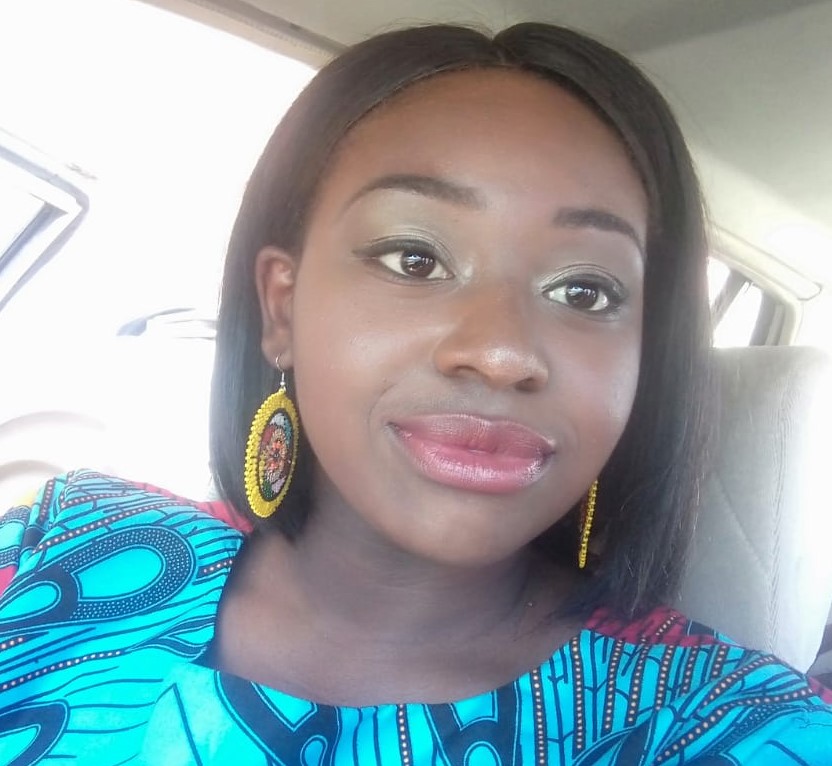
Christine Diampovisa is a 25-year-old Capetonian of Angolan origin who’s been living in the city for the past 24 years. She’s studying towards her Masters in Public Relations at the Cape Peninsula University of Technology while doing freelance work.
Where do you learn about heritage?

From my grandparents and from older family members. They teach me traditions like weddings. The 21st birthday and getting that key is a tradition that’s just been passed down. I’m not actually sure what it means. You don’t have to go to a museum to learn about your history. I think it does take away that experience of actually going there and being immersed in it. Some people like that. But I think I feel this way because I haven’t been to a lot of museums, as well.

I normally learn it from my family. Close family really teaches you heritage — for instance, their experiences of growing up wherever they came from. That’s how I normally get my knowledge. But I could see it in museums, as well. I did see heritage, actually, in some museums — not from my culture, but rather from other cultures: how they came about, how the old people used to live, and how things got passed on to modern society.

There’s heritage everywhere. As a Capetonian, I see buildings and landmarks all over. So it’s not necessarily about, you know, having to go somewhere to see it on display, but it’s there in front of you. You can visit the Bo-Kaap and you can see the various churches that we have around Cape Town that also form part of the history and heritage. Not all of it is necessarily nice, but it’s a reminder of what has happened. Obviously, there are also museums and we learn a lot about history at school. And then, since I’ve always just been very curious, I google things I don’t know about. The internet is a great tool for finding out interesting things about my family heritage, and the heritage of my country and my city.

I wouldn’t say that museums are the main place we can learn about heritage, but they do play a role in it. I do see heritage outside of museums — in schools, for example. Our local teacher worked in art and theatre so she brought that museum experience to us. She brought all that heritage to us. Whenever she could, she would always reference a South African artist or someone who she felt was instrumental to her success as a woman of colour.
Are museums relevant?

I really think that they are relevant. Some of the museums hold a lot about our history. It’s always nice to know that there’s a place to go and see where things started in South Africa. Personally, my interests aren’t related to going to see museums and things like that, but there are many people who are interested in that. That’s where the relevance comes in. I’d rather read a piece about the museum than go to the actual museum, whereas other people would rather go there.

Economically, I would say museums are relevant because they do create employment for some people. And educationally, they are relevant, especially for people who are specialising in history or studying arts or whatever. Some people can go to museums for inspiration. I’m not sure; I’m just assuming. But for providing knowledge and inspiration, as well, I do say they are relevant.

Museums are relevant in that they preserve our history and cultural identity. They’re places to reflect on the past. Reflecting on the past allows us to look to the future; it’s a mixture of learning from our mistakes, seeing what worked in the past, and seeing what we can do better.

Definitely. They’ve always been relevant but more so when we had the FeesMustFall transformation debate. You know the saying about how you can’t know where you’re going unless you know where you started? So, you need to see that past in the museums in order to understand that, although the term ‘transformation’ is being thrown around willy nilly, if you will, you can see where the institutional racism lies and where those barriers come from. You can understand spatial planning and everything like that once you go to museums. You get to see how things started and you look at, say, the thatched houses and stuff like that and you think, “Wow, 30 years later, people are still living like that so what exactly has been happening? What is different from then and now ?” So, museums are definitely relevant.
Do you follow museums on social media?

I do follow the Zeitz MOCAA. That’s the only one. I actually followed the Waterfront page and that’s how I found the Zeitz MOCAA. It just looked so interesting. Like, they always had these things that popped up. This is before COVID, back when they had events and things like that. I followed it mainly to see when things were happening.
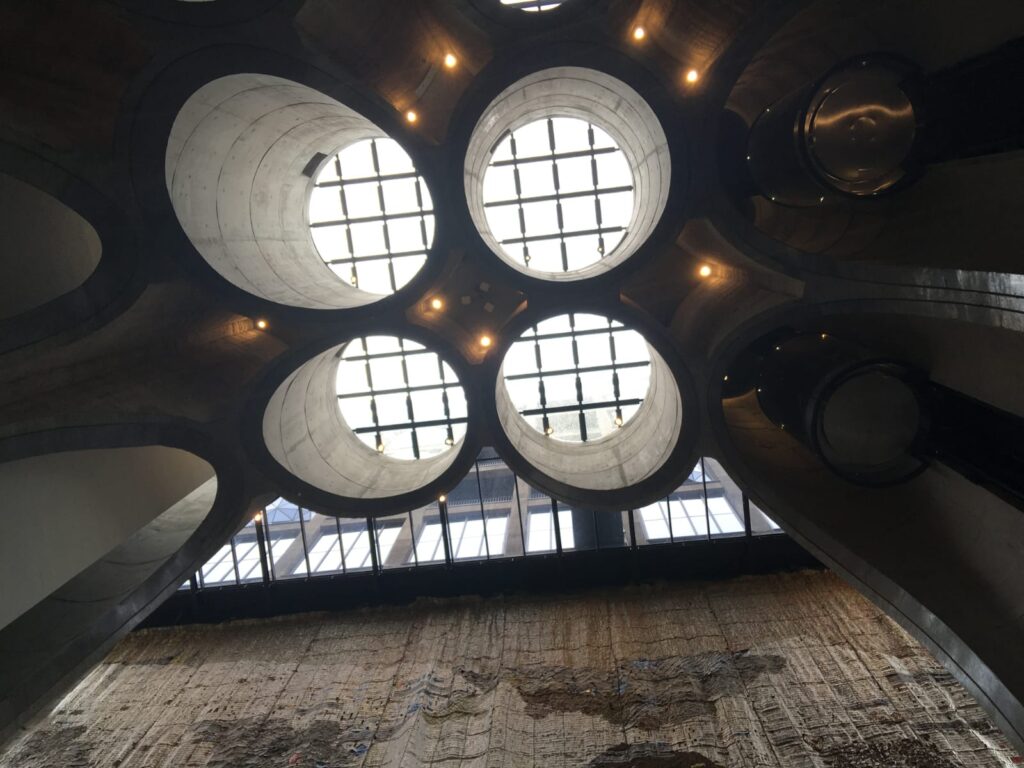

I actually don’t. I’m not a social media person, as well. I don’t really follow a lot of accounts. I don’t like being on my phone. But I do remember some museum blogs I saw. Some of them are really good blog posts and I loved them so it would be really nice to actually look at them again.

I don’t think I follow any museums on social media. I used to follow the Zeitz MOCAA. Is that a museum or an art gallery? I don’t know if it counts. [Yes.] I used to follow them to find out about Museum Nights, but not anymore. I had a bit of a cull on my social media following because I felt I was following too many places so at the moment, I don’t think I’m following any museums.

I follow Iziko South African Museums, as well as the Zeitz because my friend works at the Zeitz. We were following Zeitz when they were still in the production phase of it.
I follow Iziko so that I can see when they have something new that I maybe haven’t seen before. So, it’s like a flyer or a promo. It’s easier that way instead of going to the website because they don’t always update their website. Also, because Iziko is quite a big institution (so it’s difficult for them to capture everything on their social media), I sometimes go to the tagged posts, then I can also see pictures that other people post. Then you’re thinking, “Oh, I want to go back to revisit this specific exhibition, etc.” That’s why I follow them on social media, more so on Instagram because that’s the only one that I’m really on but I’ll also check them out on Facebook when I do go on Facebook every now and then.
I follow Zeitz because my friend works there and also because they have really nice pictures. They do have, you know, different types of art on display. It will be videos or, like, some black fabric is blowing in the wind with a fan. So, I also follow them for the way they just capture or display things. They are also doing a great job.
What can museums in South Africa do better?

I’m not sure. I’m not sure if museums are already advertising enough about how to visit them and their locations. I think if I were following them on social media, then I would know that but, since I’m not, I think they could advertise more because I don’t know if a lot of people know exactly where the museums are. But, you see, I think that is already out there. I just don’t know about it. Museums aren’t common knowledge. They don’t come up on social media a lot unless you’re following them.

They could put themselves out there, make people aware that there are museums in this specific area and tell them about what they offer or what they can do. Also, museums can try to maybe relate (if possible, because I know this is probably hard) what they are showcasing to most of the individuals that visit in such a way that they take away something that will be instilled in their minds at all times. They should try to make it an interactive and fun learning experience that’s also affordable for most people and find a way to relate the experience to the majority of people that are likely to come to them.
They should make learning simplified, in a sense, and interactive so you’re not just standing there and reading. Making exhibits visually appealing, too, is important. If possible, they should have the discoveries on-site, as well.

To put this in a commercial way, if they could take the concept of something being ‘limited edition’ and bring that over into museums. A museum could collaborate with another museum in another country or city to display certain things for a limited time at a museum here and vice versa. A special exhibit for a limited amount of time — that’s something I would be keen to go to. I rarely return to museums I’ve been to before because often the stuff you see there is the same stuff you’ve seen before. However, if they have a special feature exhibit, that’d be great.
Also, more Museum Night-type events would be great. I really enjoyed those but they don’t happen as often as I like. Going in the evening is a very different atmosphere from going during the day, especially with a crowd (well, maybe that’s not ideal now with COVID but if things improve in the future). Live music, food trucks and getting local businesses involved would create more of an atmosphere and an event.

The perfect museum for me would be a museum where you feel a part of it, like an immersive experience with a digital aspect so that you can get other people involved. Not everybody enjoys walking around and reading the little placards. Also, being able to do a virtual tour. They usually let you do your own exploring, but having a guide here and there would be ideal because I actually prefer when you do, say, a walking tour, and someone tells you what’s happening instead of you just walking and reading.
It would also be nice to have a digital aspect where you can see what you’re getting yourself into before you go to the museum, like a teaser. I’m not going to take three taxis to the Waterfront only to get there and everyone says the exhibition is closed. With digital, at least you know what to expect and who will enjoy it.
Museums Need to Do More
While useful and important, museums aren’t the sole gatekeepers of heritage. Social institutions like schools and the family are influential sources of tradition and young people would like to see the interactivity of such relationships replicated in “immersive” museums which have “more of an atmosphere”. Given the vast amount of heritage surrounding Capetonians, museums need to do more to grab youth attention.

